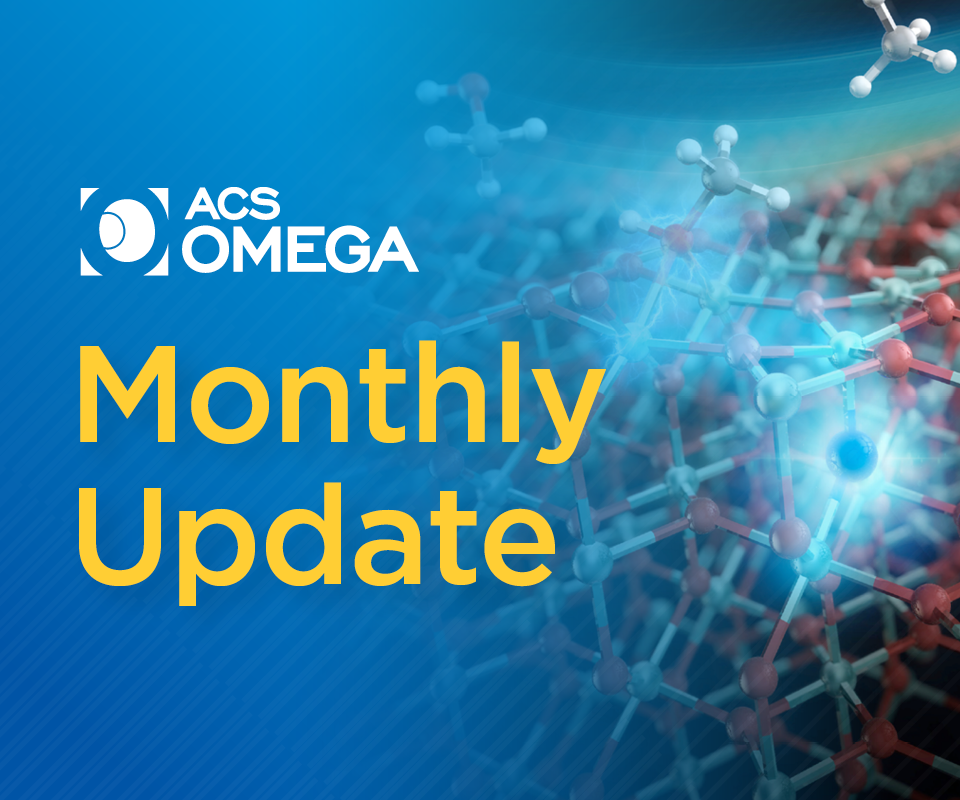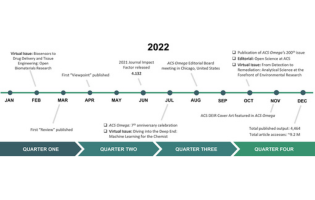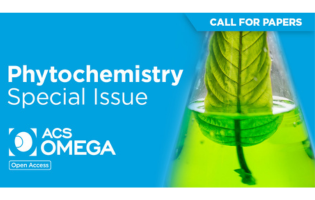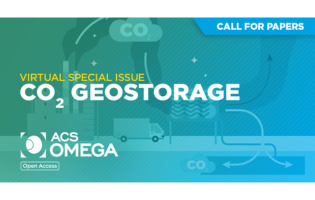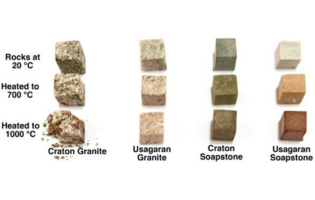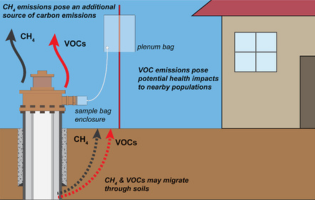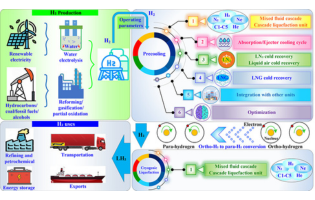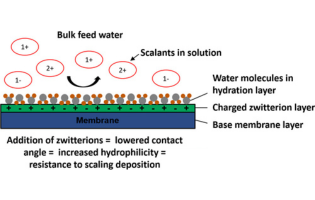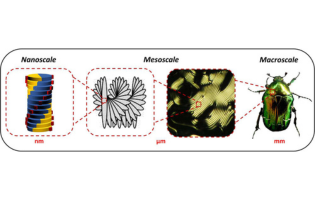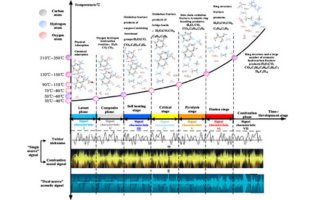What's New
As we approach the eighth anniversary of ACS Omega in July, we reflect on its impressive growth and diverse community. We take pride in our progress, thanks to the collective strength of our global community. We have been able to develop a high-quality, broad scope open-access journal, featuring rigorous peer review and fast processing times.
In this Editorial, we present some significant journal statistics and activities from 2022 and the first few months in 2023, highlighting noteworthy publications while providing a glimpse of what lies ahead for the remainder of the year. We extend our heartfelt gratitude to our worldwide community of authors, reviewers, readers, editors, and staff for their invaluable contributions to the success of ACS Omega.
ACS Omega Calls for Papers
Editor: Esra Çapanoğlu
Epidemiological research suggests that the consumption of foods containing phytochemicals, such as vitamins, polyphenols, carotenoids, omega-3 fatty acids, organic acids, phytosterols, and bioactive peptides, may play positive roles in preventing various diseases associated with ageing, inflammation, arthritis, osteoporosis, cardiovascular diseases, diabetes, and cancer. This Virtual Special Issue will cover relevant topics related to phytochemicals, including their presence and availability in different matrices, changes that occur during processing and encapsulation, and their connection to gut microbiota and human health.
Editors: Mohamed Mahmoud, Muhammad Arif, Yihuai Zhang
Research has demonstrated that carbon dioxide can be securely sequestered underground, particularly in deep, permeable rock formations, as a means to address carbon emission challenges. This Virtual Special issue seeks to encourage the submission of high-quality studies that delve into various aspects of CO2 geostorage, including trapping mechanisms and factors influencing trapping potentials, such as geochemical and geomechanical aspects and the effectiveness of associated seals.
ACS Omega - In The News
Energy storage is crucial for managing excess energy that is not immediately needed. While large batteries are commonly used, they can be costly and resource-intensive to manufacture. A simpler alternative called thermal energy storage (TES) collects and stores energy as heat in materials like water, oil, or rocks. Granite and soapstone, found worldwide, are potential TES materials due to their unique properties. Researchers from Nelson Mandela African Institution of Science and Technology and Ardhi University examined rock samples from Tanzania and discovered that soapstone from the Craton belt performed exceptionally well as a TES material. It effectively absorbed, stored, and released heat while maintaining stability. Further experiments are needed, but these findings offer promising prospects for sustainable energy storage solutions.
Reference: Lilian Deusdedit Kakoko, et al. Experimental Investigation of Soapstone and Granite Rocks as Energy-Storage Materials for Concentrated Solar Power Generation and Solar Drying Technology. ACS Omega 2023 8 (21), 18554-18565
A new study has revealed a concerning threat to residents living in areas where fossil fuels were once produced. Even though these wells are no longer operational, they continue to emit cancer-causing substances and other toxic air pollutants. The study focused on 48 abandoned wells in Western Pennsylvania and discovered harmful volatile organic compounds (VOCs) leaking from them. While it has been known that active drilling sites release hazardous air pollutants, this is the first time independent researchers have systematically measured toxic air contaminants from the millions of abandoned oil and gas wells across the country. The findings highlight the need for greater attention to the environmental and health hazards posed by abandoned wells across the USA.
Reference: Dominic C. DiGiulio, et al. Chemical Characterization of Natural Gas Leaking from Abandoned Oil and Gas Wells in Western Pennsylvania. ACS Omega 2023 8 (22), 19443-19454
Key Journal Metrics
- ACS Omega published 371 articles in May 2023; as compared to the equivalent timeframe in 2022, this represents a 0.9% decrease in published output.
- Usage continues to grow as ACS Omega's articles have had 1,184,609 downloads, a new all time record. This represents a 46.3% increase in usage compared to the equivalent time period in 2022.
Published Issues
Featured Articles
This article reviews different approaches to improving liquid hydrogen (H2) liquefaction methods, focusing on addressing challenges such as high energy consumption, low efficiency, and high expenses. The review discusses various techniques, including absorption cooling cycles, liquid nitrogen/liquid natural gas/liquid air cold energy recovery, and optimization algorithms, along with their economic, safety, and environmental aspects. Cost-efficient H2 liquefaction systems are those with higher production rates, higher efficiency, lower energy consumption, and lower investment costs, and utilizing low-temperature waste heat and renewable energy sources can significantly enhance the efficiency of the liquefaction process.
Bahram Ghorbani, Sohrab Zendehboudi*, Noori M. Cata Saady, Xili Duan, and Talib M. Albayati, Memorial University, Canada
ACS Omega 2023, 8, 21, 18358–18399
This article discusses the use of pervaporation, a membrane separation process, as a brine management strategy for water reclamation in spaceflight applications like the International Space Station (ISS). The study focuses on evaluating the anti-scaling properties of zwitterions, polymeric molecules with positive and negative ions, when coated onto pervaporation membranes. The results show that while zwitterion-coated membranes had a reduction in permeance, they exhibited significantly less scaling compared to uncoated membranes when exposed to calcium chloride, a common scalant.
Elisabeth R. Thomas, Jae Sang Lee, Hoda Shokrollahzadeh Behbahani, Ani Nazari, Yusi Li, Yi Yang, Matthew D. Green, and Mary Laura Lind*, Arizona State University & Rice University, United States
ACS Omega 2023, 8, 21, 18462–18471
This review discusses the formation of dynamic aggregates of biomolecules in water, which exhibit nanometric structures reflecting the chirality of the monomers. These structures can propagate to larger scales, influencing the chromatic and mechanical properties of various tissues in plants, insects, and animals. The article presents recent advancements in understanding the self-assembly and mesoscale ordering of biological and bioinspired molecules in water, emphasizing nucleic acids, aromatic molecules, oligopeptides, and hybrid structures, and highlights the underlying mechanisms and characterization techniques.
Federico Caimi and Giuliano Zanchetta*, Università degli Studi di Milano, Italy
ACS Omega 2023, 8, 20, 17350–17361
This article emphasizes the importance of preventing and controlling coal spontaneous combustion in mining and storage areas due to its potential for serious disasters. It reviews existing detection techniques and highlights the urgent need for new technologies. The article introduces the concept of acoustic temperature measurement technology and discusses its potential application in detecting coal spontaneous combustion. The study lays the foundation for the development of acoustic thermometry technologies, which can contribute to early warning, prevention, and control of coal spontaneous combustion, ultimately improving environmental safety and efficiency in coal mining and storage.
Jun Guo, Haoyu Shang*, Guobin Cai*, Yongfei Jin, Kaixuan Wang, and Shuai Li, Xi’an University of Science and Technology, China
ACS Omega 2023, 8, 19, 16519–16531
Previous Newsletters
Click below to view a previous ACS Omega Monthly Update:
© 2025 American Chemical Society, 1155 16th St NW, Washington, DC 20036, USA. View our Privacy Policy


